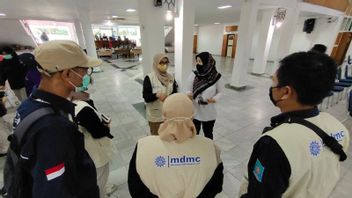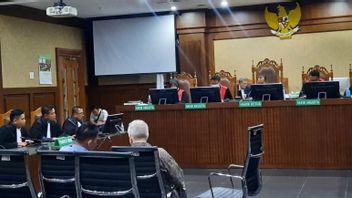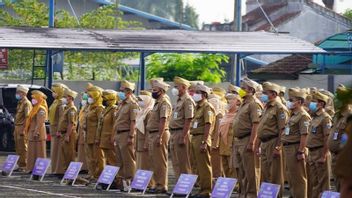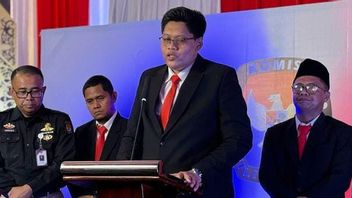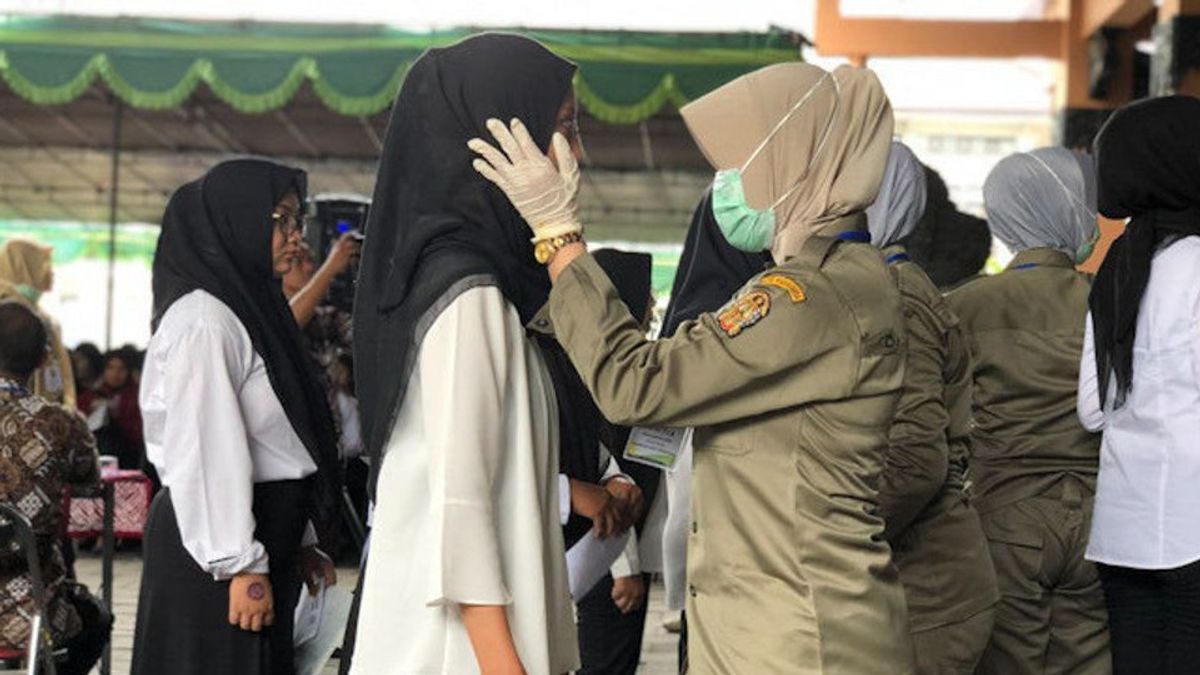
YOGYAKARTA - In the world of staffing, transfer of government is the transfer of duties and/or work locations, which can occur between agencies or in the same agency. Based on BKN Regulation Number 5 of 2019, mutations can occur because of the wishes of employees or decisions from the policies of an agency. However, can PPPK be transferred to other regions?
In the context of the State Civil Apparatus (ASN) in Indonesia, differences in the rights and mechanisms of mutations between Civil Servants (PNS) and Government Employees with Work Agreements (PPPK) will have clarity.
Civil servants have the right to submit transfers, either because of their own request or because of agency policies, while PPPK does not have the same rights. PPPK, whose status is regulated as a non-permanent employee, cannot transfer to other regions during the working contract period. This is due to the lack of mutation mechanisms regulated for PPPK, which is a challenge in the flexibility of their work position in government.
Policies regarding mutations for civil servants have been listed in the relevant laws and regulations, while PPPK does not have the same regulation. In the ASN Law Number 5 of 2014 it is explained that PPPK was appointed based on a certain period of work agreement. With another explanation, PPPK cannot apply for a transfer of duties before the work contract is completed.
In accordance with existing policies, PPPK does not have provisions that allow mutations as long as they still have ties in the work agreement. Request for mutations will be considered as resignation from the positions held. Of course, this is important so that there is no vacancy in positions that can interfere with the work system in government agencies.
Based on Article 7 paragraph 2 of the ASN Law, the employment status of PPPK is a non-permanent employee. This is what limits their right to propose mutations, in contrast to civil servants who have these rights. This shows the purpose of the law to maintain stability in government staffing by determining their respective rights and obligations.
The State Civil Service Agency (BKN) confirmed that until now there is no mutation mechanism in PPPK management, while civil servants have clear procedures. This absence resulted in PPPK not being able to transfer according to their wishes, so they had to complete their working period in accordance with the agreement that had been agreed upon.
Why can't PPPK transfer? First, because there is no legal umbrella that regulates the transfer of tasks for PPPK. If a PPPK employee moves before the contract period expires, there will be a vacancy in the position left behind. Of course this will make the agency burdened by increasing the workload of employees who are still living.
The vacancy in positions that occurs due to the transfer of PPPK before the contract period ends risks disrupting the performance of the agency. This is one of the strong reasons why the mutation rules for PPPK are very strict, namely to maintain the regularity and operational continuity of government agencies.
In terms of performance evaluation and assessment, the transfer of PPPK also provides challenges. When the PPPK is transferred, it will be difficult for the Personnel Guidance Officer (PPK) to provide a consistent assessment of employee performance. This makes it a serious challenge when it comes to career development and increasing PPPK competence.
Even though they cannot make mutations, PPPK can still change work units by registering for new formations. This can only be done after 90 percent of the work contract period is completed. This process distinguishes from mutations, because it involves re-registration and meets the formation requirements available in new agencies.
For PPPKs who intend to move work units, they must meet certain criteria. It is important for them to complete the work period determined in the contract in order to apply to different work units. However, this process does not guarantee instant revenue, because PPPK will again compete with other applicants.
If a PPPK resigns by submitting a transfer before the contract ends, they will lose the right to take part in the PPPK recruitment on the next occasion.
SEE ALSO:
This will limit their chances of getting a new position and have a long-term effect on their careers in government. Therefore, PPPK is highly advised to wait until it completes its tenure before considering moving to other agencies.
That's a review of whether PPPK can be transferred to other areas. Hopefully useful. Visit VOI.id to get other interesting information.
The English, Chinese, Japanese, Arabic, and French versions are automatically generated by the AI. So there may still be inaccuracies in translating, please always see Indonesian as our main language. (system supported by DigitalSiber.id)






